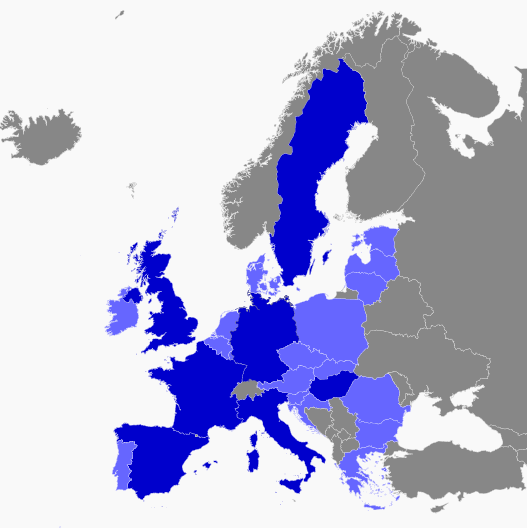Introduction

The Brexit debate in the UK since 2016 has been making it evident: many citizens in the EU are ill-informed about what the EU is, what it does, and how decisions in the EU are made. Mistrust into the idea of international cooperation, and recourse to nationalistic doctrines are growing in many of the 28 EU member states, and populism has become a problem everywhere. So-called Euroscepticism is particularly widespread not least amongst the less educated.
In the Have Your Say project we address these problems by developing innovative forms of educational activities for low-skilled adults to help them re-assess their attitudes towards the EU in a process of reflexion, discourse, and fact-based thinking, delivered in an activating, communicative, possibly joyful and inspiring way. The new methods, tested in 8 pilot projects in 7 partner countries, will tend to be out-of-standard-classroom activities including games, interaction, movement, creativity. They will be applicable in other adult education contexts as well.
The project title – Have your Say – indicates that this is not about forcing an opinion on people. It is about giving people space and freedom to formulate and express their thoughts, leading them through a process of testing these thoughts in interaction with others, and help them underpin opinions with verifiable facts rather than hearsay or popular myths. We expect that this will eventually lead to a shift of attitudes in most participants, but this is not an obligatory result. What is obligatory is that participants leave the pilot projects with increased ability of facts-based thinking and reflection on the motives of their attitudes and opinions. This will strengthen European civic education on a basic skills level
Target group
Final beneficiaries are low-skilled adults who as citizens or long-term residents have electoral rights and thus are part of the democratic process of their countries. Preference will be given to members of sub-groups of the population where negative attitudes towards the EU are widespread.
Objectives
Short term:
Create 8 innovative methods for involving low-qualified adults in activities that help them interactively develop their citizenship skills with respect to the EU.
Mid term:
Enhance the ability of adult education in Europe to promote basic citizenship skills for low-qualified adults.
Long term:
Low-qualified adults improve their basic citizenship skills and understanding of EU.
Intellectual Outputs
The results will be submitted to adult educators in Europe for further use in form of 3 tangible outputs, resulting from the 3 main work packages of the project.
1) Collection of good practice of interactive civic education activities for adults from 7 participating countries. – E-book.
2) Teaching aid (e-textbook) presenting the EU, its institutions and the way it works to readers with low levels of literacy by applying the model of “simple language”/easy read. – E-book in 7 languages.
3) A catalogue (tool box) of seven new and innovative educational activities with all necessary materials to enable others to use them in their everyday educational work. – E-materials in 7 languages.
Staff Training
A staff training week for educators and community workers will be held in Strasbourg or Brussels (European Parliament / European Commission) to make them familiar with EU institutions and topics so that they lead their pilots with more background and authority. Also, they get acquainted with the other pilots under development.
Multiplication
Multiplier events in all countries by he end of the project (Month 31) will be used as starting point for mainstreaming the new methods.
Impact
● This project will include at least 160 final beneficiaries in the pilot activities (10 per method, each of them tested at least twice, by 8 partner organisations), or more when partners opt for “small methods”, which then will be carried through repeatedly.
â—Ź At least 180 adult educators, social and community workers will participate in the multiplier event.
â—Ź 24 adult educators and community workers will improve their familiarity with European institutions and get insight into the other methods under development in the project.











